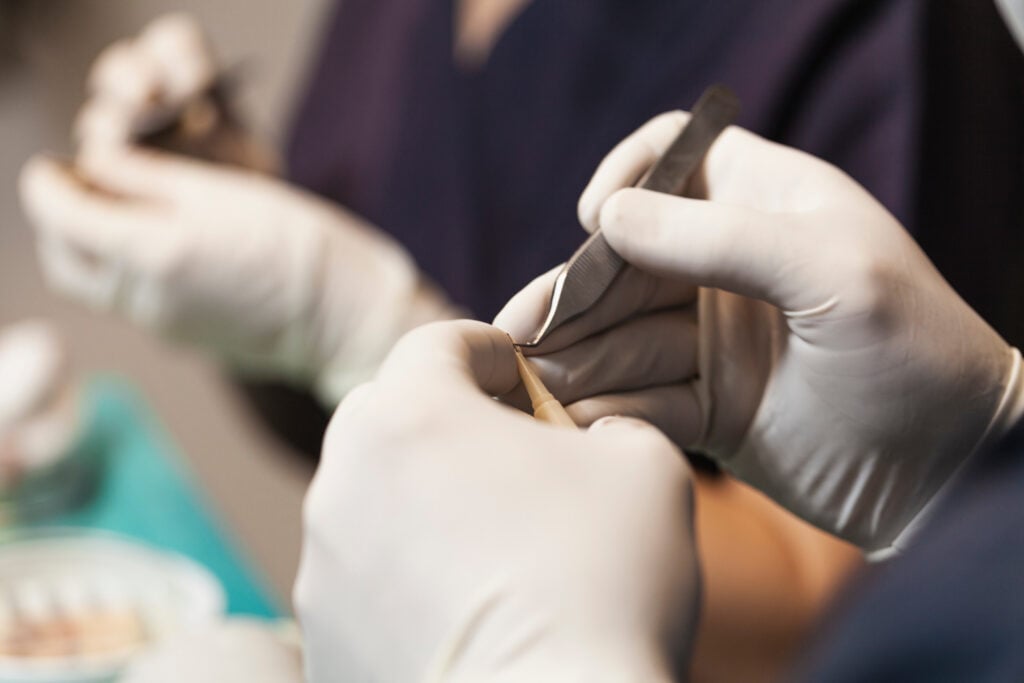
Sustainability in Hair Transplants: Greener Choices at Home & Abroad
More Britons than ever before are pursuing hair transplants, both at home and at clinics abroad. The affordability of medical tourism in countries like Turkey has made the procedure more accessible. While it’s good news for those suffering from hair loss, it does raise some concerns about the environmental impact of traveling for surgery.
Luckily, strategies are being implemented in both the UK and Turkey to help off-set the carbon emissions associated with hair transplants, as well as new approaches to make the procedure altogether more sustainable and environmentally-friendly. In this article, we’ll be taking a look at how both the UK and Turkey are addressing issues of sustainability in their hair transplant practices.
- Understanding the Environmental Impact of Hair Transplants
- Sustainable Practices in UK Hair Transplant Clinics
- The Turkish Model: Combining Affordability with Sustainability
- Travel Considerations: Balancing Carbon Footprints
- Responsible Medical Tourism for British Patients
- The Future of Sustainable Hair Restoration
- Conclusion: Smart Choices For You and the Planet
Understanding the Environmental Impact of Hair Transplants
The environment might not be the first thing you think of when you imagine a hair transplant surgery. However, cosmetic procedures – and indeed any form of surgery – require a great deal of energy; from adequate lighting, to instrument sterilisation, to temperature control and vital machinery; it is a very energy-intensive process. That’s to say nothing of the waste produced as part of the process. In the interests of hygiene, there are many tools and items that are disposable and single-use. Once the surgery is completed, these items are discarded. These include surgical gloves, plastic packaging, and surgical masks.
However, while all surgical care consumes energy and materials, hair transplants are usually performed under local anaesthesia, avoiding high-impact inhalational anaesthetic gases (e.g., desflurane, nitrous oxide) that are major carbon ‘hotspots’ in general surgery.
But the trouble can start even before you enter the operating theatre. Whether you fly by plane to Turkey, or drive to your nearest clinic in the UK, the carbon emissions of your journey add to the environmental impact of the procedure. So, what can be done?
Thankfully, clinics in both the UK and in Turkey have been devising strategies and methods to reduce waste and energy expenditure where possible, while still delivering the highest quality care to patients.
Sustainable Practices in UK Hair Transplant Clinics

One of the ways clinics in the UK have cut waste is by implementing digital consultations for patients. Like with Elithair, many UK-based clinics allow patients to answer a quick online questionnaire and provide photos of their hair loss to begin their assessment process. This cuts down both on waste paper from applications and forms, and also on carbon emissions created through traveling.
In the UK, clinics are encouraged to follow the NHS Net Zero and waste-hierarchy approach: eliminate where possible, reduce, re-use (for designated reusable instruments), and recycle/segregate correctly while maintaining safety. Where instruments are classed as reusable, they must be processed via validated steam sterilisation in line with HTM 01-01 and manufacturer instructions.
The Turkish Model: Combining Affordability with Sustainability
According to the UN Tourism Data Dashboard, Turkey is one of the top ten tourist destinations in the world. Turkey welcomed about 56–57 million international visitors in 2024, underpinning a large medical-tourism sector. Its popularity as a destination is driven, in no small part, by its medical tourism industry. Known for its high quality and relatively lower costs, the cosmetic surgery industry in Turkey is big business.
But all of that tourism can cause its own set of problems, namely in the form of carbon emissions from planes and other vehicles. Studies have been done that draw the connection between the effects of climate change in Turkey and its booming tourism industry in recent years. If the industry is to survive, it’s clear that something has to give.
Many Turkish clinics, like Elithair, have taken it upon themselves to integrate sustainable practices into their procedures, in a bid to offset some of the environmental damage. One of the ways in which Elithair does this is through steam-sterilising instruments that are specifically designated as reusable, in line with international hygiene standards. Devices labelled single-use are not reprocessed.
Elithair also takes a digital-first approach to patient care, with the Elithair App streamlining every stage of the process. For a complete overview of the patient experience and what to expect from a procedure abroad, explore our expert guide to hair transplants in Turkey.
Travel Considerations: Balancing Carbon Footprints

If you’re considering flying to Turkey for your hair transplant, as opposed to staying in the UK, the carbon emissions associated with air travel might be a concern. This is understandable, but is also worth putting into perspective. With direct flights from the UK to Turkey, unnecessary travel – and further emissions – are lowered. Choosing a non-stop flight generally lowers emissions versus connecting routes, all else equal.
Additionally, many airlines now offer passengers the opportunity to offset their carbon footprint with carbon credit schemes. Quality and climate impact vary; regulators caution against relying on offsets alone without robust evidence.
Responsible Medical Tourism for British Patients
British patients seeking hair transplants abroad can reduce their environmental impact by making responsible choices. Look for reputable, legitimate clinics who are open and transparent about their sustainable practices. Check that any clinic using reusable instruments follows validated steam-sterilisation and traceability processes, and that single-use devices are not reprocessed, in line with MHRA/HTM guidance.
Where possible, choose a clinic that offers remote, digital aftercare information and follow-ups, to prevent the need for repeat travel. Medical tourism doesn’t necessarily have to be a net negative for the environment, but it helps to be informed about the choices you make ahead of time.
The Future of Sustainable Hair Restoration

If one thing is certain, it’s that the hair transplant industries in the UK, Turkey, and beyond will have to adapt to survive as they grapple with increased demand and the environmental impact of the procedure. In the future, this could look like an international standardisation of sustainable surgical practices, which could be implemented across all forms of surgery.
In the meantime, scientists are busy researching options that could prove effective for combating hair loss, while being far less invasive and thus requiring less energy, and producing less waste. Exosome injections and stem-cell-based approaches for androgenetic alopecia remain experimental. No exosome products are MHRA-approved for hair loss, and stem-cell interventions are confined to research settings pending robust, long-term data.
Conclusion: Smart Choices For You and the Planet
While far from perfect, it is still possible to make informed decisions and greatly reduce your carbon footprint while pursuing a hair transplant, both domestically in the UK or in a destination like Turkey. Clinics have independently been making sustainable choices for their own practices, and many are forthcoming about these in their information online.
By taking time to explore your options, you have the best chances of finding a clinic that best suits your needs and which values the environment. If you’d like to start your hair transplant journey, or learn more about our practices at Elithair, our experts are on hand to guide you.
FAQs
Are carbon offset schemes for flights genuinely effective?
Yes, when purchased through reputable providers. Carbon offsetting supports projects such as reforestation, renewable energy, or clean water systems. However, offsets should complement—not replace—direct sustainable practices from both patients and clinics.
Do sustainable practices increase the cost of a hair transplant?
In most cases, no. Clinics adopting digital consultations, reusable instruments, or eco-friendly materials often save money in the long run, meaning prices remain competitive. In Turkey, especially, economies of scale keep procedures affordable even with green initiatives.
Can choosing a clinic in Turkey really be more sustainable than a local option?
Yes, under certain conditions. A direct flight combined with an all-inclusive treatment package (covering transfers, accommodation, and aftercare via digital platforms) can reduce fragmented travel and resource use. In contrast, multiple journeys within the UK for consultations, surgery, and follow-ups may generate a comparable or even larger footprint.
What are clinics in the UK doing beyond biodegradable materials?
Some are investing in renewable energy sources for their facilities, adopting paperless systems, and working with suppliers who provide recyclable or compostable medical packaging. These steps align with NHS sustainability guidelines.
How do Turkish clinics ensure re-sterilised tools are as safe as single-use?
Clinics using steam sterilisation follow international hygiene standards (such as ISO or JCI accreditation). This process eliminates all bacteria and viruses, making instruments safe to reuse without compromising patient safety.
Could future therapies like stem cells be more eco-friendly than transplants?
Potentially, yes. Less invasive treatments, such as stem cell or exosome therapy, may require fewer surgical tools, shorter procedure times, and reduced energy use. If proven effective, these could lower both medical waste and overall emissions.
Are sustainable hair transplants as effective as conventional ones?
Yes. The surgical techniques (FUE, DHI, etc.) remain the same. The difference lies in the clinic’s operational choices—how instruments are sterilised, how waste is managed, and how patient travel and aftercare are streamlined.


